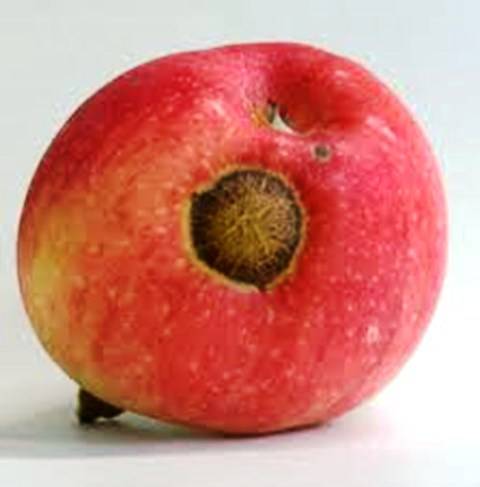
"An apple a day keeps the doctor away" is an old Welsh proverb that most of us are familiar with, but what makes this fruit so special? What health benefits are associated with eating apples? As one of the most cultivated and consumed fruits in the world, apples are continuously being praised as a "miracle food". Apples are extremely rich in important antioxidants, flavanoids, and dietary fiber. The phytonutrients and antioxidants in apples may help reduce the risk of developing cancer, hypertension, diabetes, and heart disease.
Blemished apples that used to be thrown away or sold to the juice industry for rock-bottom prices can now be used to create a “superfood” powder thanks to research conducted at Tel-Chai Academic College and the Galilee Development Authority. Researchers found that is possible to make high-quality apple powder with surprising nutritional benefits from second- and third-rate apples that otherwise would be wasted.

Dr. Ofir Benjamin from Tel Chai Academic College and Prof. Raffi Stern from the Galilee Research Institute of the Galilee Development Authority, wanted to find a solution to the 15,000 tons of apples (some 10 percent of the annual yield) discarded each year in Israel due to appearance, size or falling to the ground before ripening. The discarded apples have traditionally been sold to the juice industry for a fraction of their value or even just thrown away.
Benjamin and Stern came up with a powder that is first grated and then freeze-dried with the addition of a very small amount of milk powder to prevent crystallization. The powder is intended as a healthy alternative to sugar to sweeten soft drinks and as a natural nutritional supplement. With 600 mg of vitamin C per 100 grams, it contains three times more vitamin C than guava and ten times more vitamin C than orange juice. It also has a high percentage of antioxidants and nutritional fibres, the researchers say, making it a ‘superfood.’
“We began our research last September with the aim of looking at what we could do with the enormous quantities of apples that the industry discards every year,” Dr. Benjamin told Tazpit Press Service (TPS). “We went to Bereshit, one of the major apple producers in the country, and took samples of different kind of apples: second and third grade as well as apples designated for grocery shops and we found there is no difference between the powder produced with first choice apples and second and third grade apples.”

According to Binjamin, the powder has many advantages such as no preservatives, no food coloring, and 100 percent natural ingredients, but more importantly, he says, it is a major breakthrough for farmers.
“Now apple growers will be able to take advantage of fruit that otherwise would have gone to waste,” he says. “The powder can be integrated into many food products and enrich their nutritional values, give them a refreshing apple flavor and turn them into a superfood,” he adds.
The research will be presented for the first time next week at the ‘Agricultural Innovation’ conference of the Galilee Development Authority.
A 2006 study published in the journal Experimental Biology and Medicine found that quercetin (one of the antioxidants found abundantly in apples) was one of two compounds that helped to reduce cellular death that is caused by oxidation and inflammation of neurons.
Another study presented at the same conference and published in the Journal of Alzheimer's Disease suggested that apple juice consumption may increase the production in the brain of the essential neurotransmitter acetylcholine, resulting in improved memory among mice who have Alzheimer's-like symptoms.
It should be noted that both studies were funded by unrestricted grants provided by the U.S. Apple Association and Apple Products Research and Education Council.
A study published in the Journal of Food Science in 2008 suggested that eating apples may have benefit for your neurological health. The researchers found that including apples in your daily diet may protect neuron cells against oxidative stress-induced neurotoxicity and may play an important role in reducing the risk of neurodegenerative disorders such as Alzheimer's disease.
A study involving 9,208 men and women showed that those who ate the most apples over a 28-year period had the lowest risk for stroke.
The researchers concluded that the intake of apples is related to a decreased risk of thrombotic stroke.
A group of researchers at The Florida State University stated that apples are a "miracle fruit".
They found that older women who ate apples everyday had 23 percent less bad cholesterol (LDL) and 4 percent more good cholesterol (HDL) after just six months.
Apples could also help lower your risk of diabetes. A study involving 187,382 people found that people who ate three servings per week of apples, grapes, raisins, blueberries or pears had a 7 percent lower risk of developing type 2 diabetes compared to those who did not.
There is growing evidence suggesting that an apple a day may help prevent breast cancer, according to a series of studies conducted by prominent Cornell researcher Rui Hai Liu.
Liu said her research adds to "the growing evidence that increased consumption of fruits and vegetables, including apples, would provide consumers with more phenolics, which are proving to have important health benefits. I would encourage consumers to eat more and a wide variety of fruits and vegetables daily."
In a study published in the journal Food Chemistry in 2014, a team of researchers analyzed how the bioactive compounds of seven different varieties of apples - Granny Smith, Braeburn, Fuji, Gala, Golden Delicious, McIntosh and Red Delicious - affected the good gut bacteria of diet-induced obese mice.
The researchers found that, compared with all other apple varieties, Granny Smiths appeared to have the most beneficial effect on good gut bacteria. They suggest that their findings may lead to strategies that prevent obesity and its associated disorders.









